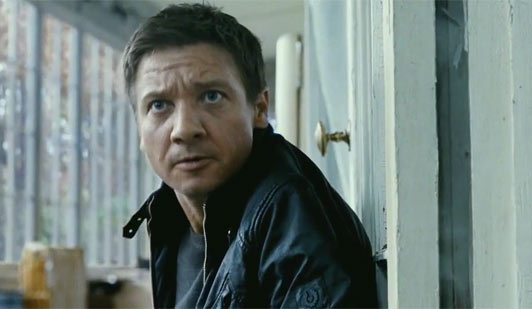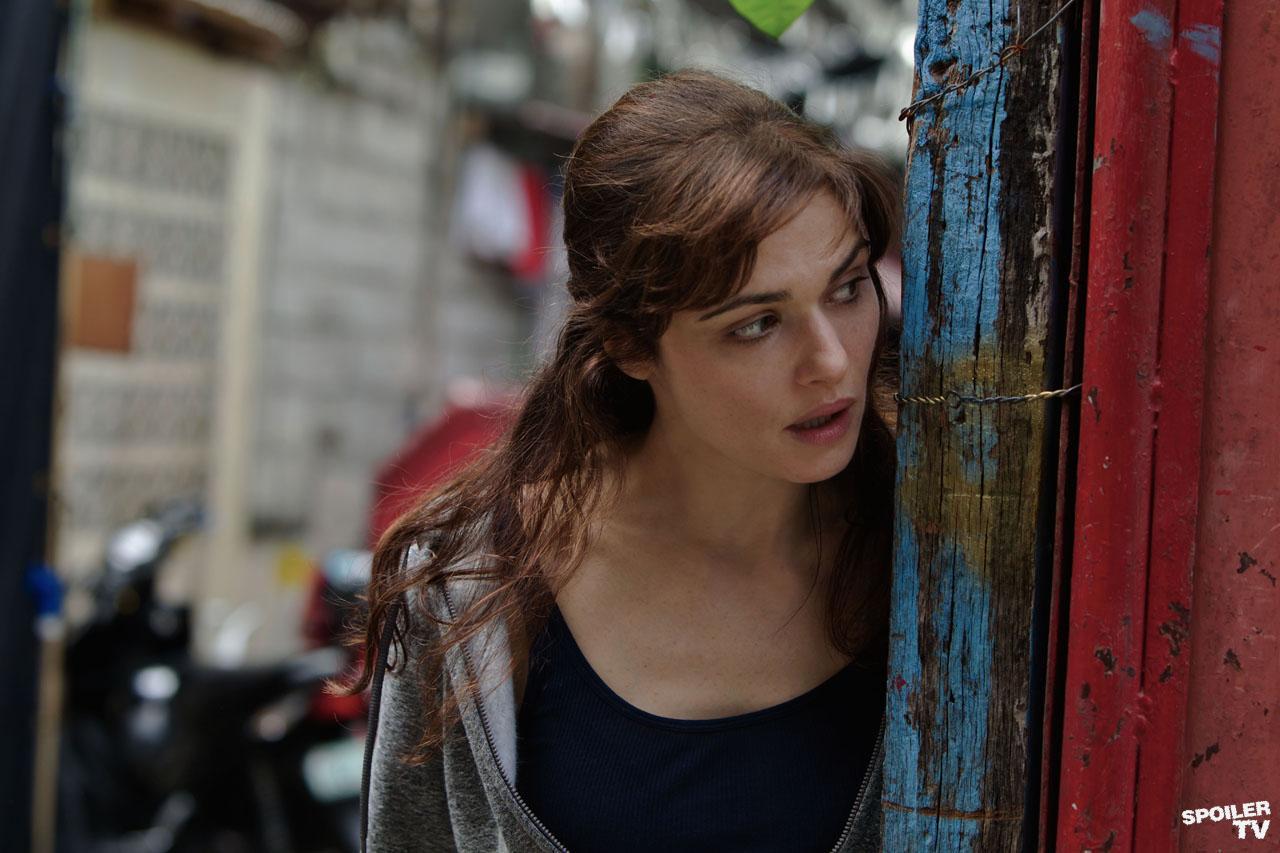|
When an unseen Jason Bourne blows the whistle on
the CIA and the various projects they are involved with, a crisis point
is
reached. Colonel Eric Byer (Edward Norton) is employed to shut down
Operation
Outcome and to eliminate the agents involved. One of those men set to
be killed
is on a special training mission in Alaska. His name is Aaron Cross
(Jeremy
Renner) and he has to go on the run. Also under attack is Dr. Marta
Shearing
(Rachel Weisz) who survives a shooting in her lab, where special pills
are
developed to enhance the physical and mental state of an agent's mind.
After
escaping Alaska, Aaron saves Shearing from being murdered and asks her
to help
him with a process that will allow him to uphold his enhanced strength.
The
pair continually avoids capture from all ends, leading up to a deadly
chase in Manila
on a motorcycle.

The
Bourne Legacy spawns an unwarranted, misguided
relative, who at each dizzying turn continues to outstay his welcome.
The
fourth sequel in the franchise is a result of the banality of
Hollywood's
imagination: what is profitable must
be relived, rebooted and reproduced. With the amount of money spread
around
Hollywood, films and their directors are being treated like brands. If
a film
has a fresh idea and an unknown director, it will be deemed less
bankable and
therefore less likely to attract a higher marketing budget for fear
that
audiences won't grasp an unknown concept. Hence, riskier films are
moulded by
studios to include popular but overly familiar staples, like the car
chase, or
the love interest. The Bourne films,
adapted from Robert Ludlum 1980s spy novels, are essentially
action-mysteries,
but pitched at a slightly more grounded level than the genre usually
calls for.
They're a profitable brand too because together the first three movies
starring
Matt Damon earned close to a billion dollars. I loved the gravitas
applied to
the very first movie but its sequels are outright plagiaristic of its
template,
and wrapped in a nauseating overcut visual style that people seem to
confuse
with being innovative. On top of these existing problems, is there
anything
more foreboding for a series than not having the original talent
available?
Tony Gilroy takes over from Paul Greengrass as director, having penned
the
screenplays for the previous films. Troublingly, he's not even adapting
a
Ludlum story anymore. Ludlum wrote three Bourne stories himself but
died in
2001. The series was continued by author Eric
Van Lustbader,
who has almost annually written seven separate stories. Legacy
is the first adaptation of his work and hopefully the last. The
most surprising criticism of this film is just how boring it is. Minus
Damon,
this film is left with a new character that is thinly written and not
well
established, dumped in action sequences that are big but as overcut as
they
have ever been. Gilroy describes the film as being on a larger canvas
and
expanding the universe, but that space is filled deliberately with
everything
we've experienced before, only not as thrillingly.

There's
a lack of precision in the overall construction of the film. The
opening scenes
in Alaska, for example, are overextended and intercut with various
story
threads so that the film is longer (it's the lengthiest of the series,
running
at 130 minutes), more convoluted and confusing than it ever needed to
be. And
if you're expecting wall to wall action, the story is bogged down by
dense
periods of science-fiction jargon, posturing as real conversation. I
really
felt these conversations dragged and didn't add depth to the
characters. When
the action does strike it's sloppy because it's so chaotically handled.
Faster
is by no means better. There is one powerful scene where a brainwashed
scientist attempts to shoot everyone inside a lab. I couldn't help but
think of
James Holmes again and for that alone the scene has an unintentional
sense of
reality to its merciless nature. It also helps that the spatiality in
this
scene is clear. Later action sequences though, specifically a numbingly
long
motorcycle chase, are so overcut and fuzzy that it's never clear where
the
baddies are in relation to our heroes. The film will also have you
believe that
you can be shot off a motorcycle, thrown into a fruit stand, and have
the
strength to continue riding again. And if you were to accuse this film
of being
ridiculously overproduced you only have to look at the cast. There are
hugely
talented people here that aren't well served by the script. Rachel
Weisz is
left to sob and just seems to exist for the scientific exposition. She
could be
a great emotional hook but they don't know how use her properly.
Renner's star
power in Hollywood is rising but throwing him into action scenes is no
substitute for genuine personality or depth of character. He needed a
lot more
of both here to utilise his talents. I didn't find anywhere near as
sympathetic
involving as Damon. On a final note: what is Shane Jacobson (Kenny,
2006), doing in this film? It's a
tiny part but rather depressingly, it reminds you of what the local
talent here
have to subject themselves to in order to be noticed in Hollywood. And
that's putting
it nicely.
|